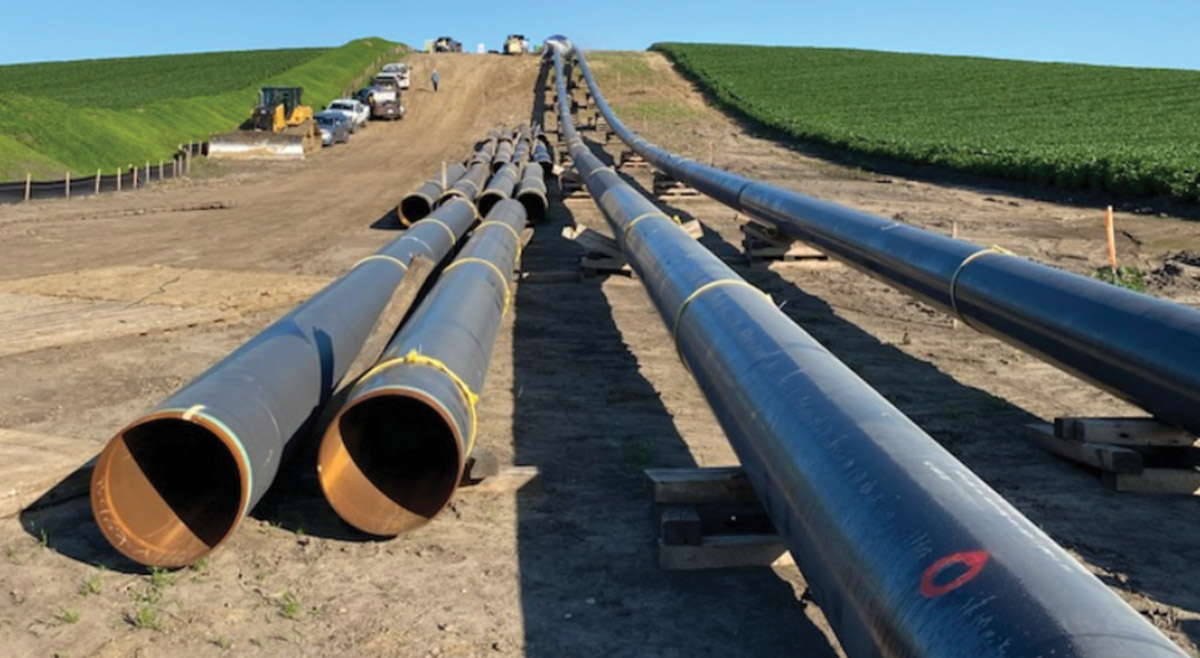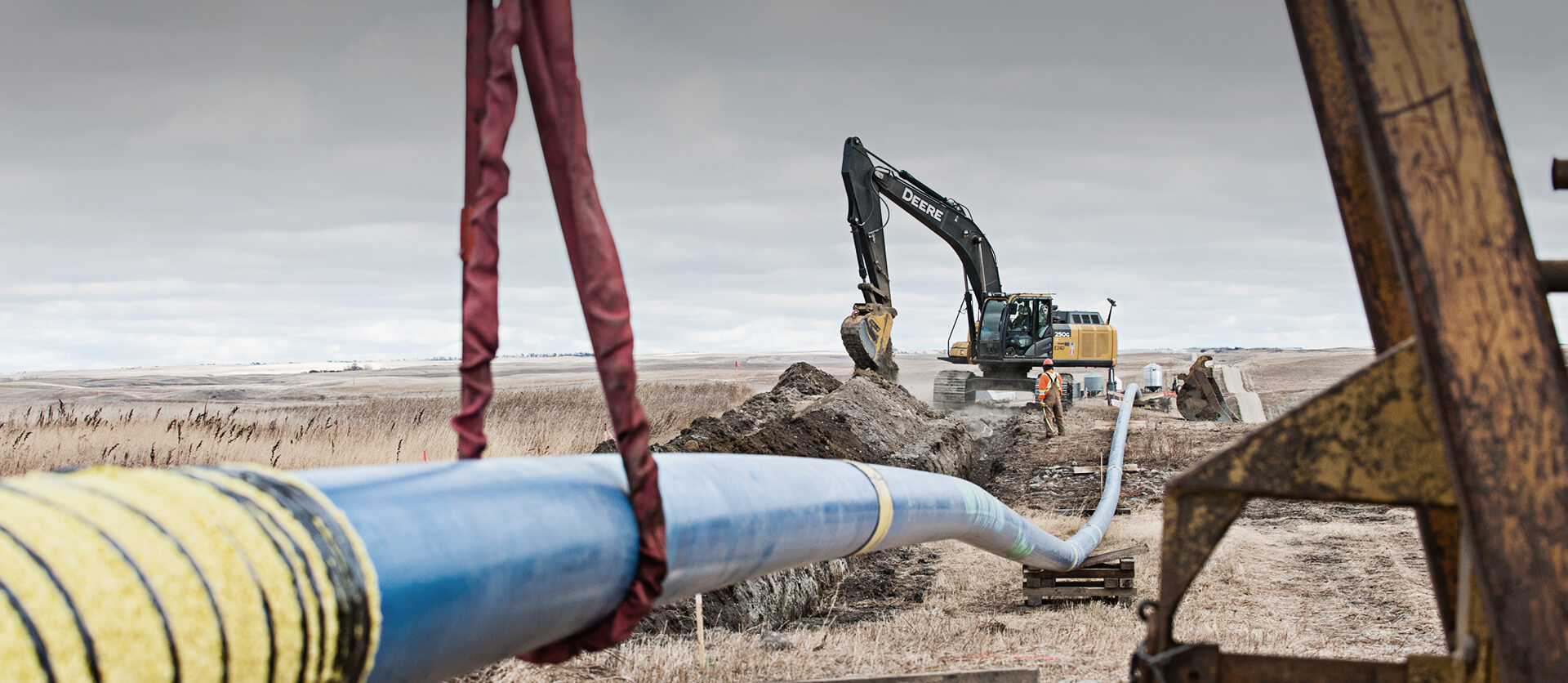Pipeline Construction Services FAQs: What Clients Need to Know
Wiki Article
The Crucial Overview to Understanding Pipeline Construction Providers and Their Significance
Pipeline Construction services are fundamental to the transportation of important sources such as water, oil, and gas. These services include careful planning and implementation, adhering to rigid security and ecological requirements. As the market adapts to contemporary challenges, understanding its ramifications and elements comes to be progressively vital. What factors add to the expanding significance of these services in today's economic situation? The complying with areas will certainly explore these important elements.Review of Pipeline Construction Services
Pipeline Construction services include a variety of tasks vital for the installment and upkeep of pipes made use of to transfer different materials, consisting of oil, gas, and water. These solutions are crucial for ensuring the risk-free and efficient movement of resources from one place to another. The process usually begins with detailed planning and style, which takes into consideration governing needs, ecological factors to consider, and logistical obstacles.Excavation and grading of the land are conducted to prepare the website for Pipeline installment once planning is complete. This is adhered to by the real laying of the pipelines, which involves welding or joining sections with each other to develop a continuous flow course. After installment, strenuous screening is carried out to guarantee honesty and security. Maintenance solutions are also offered to attend to any type of problems that may arise over time. On the whole, Pipeline Construction services play an essential role in sustaining facilities for energy and water distribution.
Trick Components of Pipeline Construction
An effective Pipeline Construction job depends on several vital elements that assure the efficient and safe installation of the Pipeline system. Detailed website evaluations are important, as they identify the ecological and geographical factors that might affect Construction. Next, the choice of proper products, such as pipes and installations, is important for securing toughness and compatibility with the transferred materials.Furthermore, progressed Construction techniques, including trenchless innovation and directional exploration, improve performance and minimize environmental effect. Effective job management is one more essential component, coordinating labor, devices, and timelines to satisfy job objectives.
In addition, interaction amongst stakeholders, consisting of designers, contractors, and local authorities, guarantees alignment on project specifications and requirements. Finally, comprehensive quality assurance steps throughout the Construction process make sure conformity with market requirements and make best use of the Pipeline's operational life-span. Collectively, these components form the backbone of an effective Pipeline Construction job.
Safety Criteria and Rules in Pipeline Construction

Regulative bodies, such as the Occupational Safety And Security and Wellness Administration (OSHA) and the Pipeline and Hazardous Materials Safety Management (PHMSA), set forth particular demands that regulate Construction methods. These include methods for equipment usage, employee training, and emergency situation action procedures. By carrying out these criteria, Construction business not only safeguard their staff members yet additionally safe and secure public trust fund. Eventually, strenuous precaution add to the lasting success of Pipeline jobs, ensuring they fulfill both functional and ecological assumptions.
Ecological Factors To Consider in Pipeline Projects

Environmental factors to consider are important to the preparation and implementation of Pipeline projects. These tasks should analyze possible influence on environments, water resources, and neighborhood wildlife. Performing complete ecological influence evaluations (EIAs) is important, allowing stakeholders to determine and reduce risks prior to Construction begins.
Safeguarding delicate areas, such as wetlands and habitats, often requires applying details layout attributes or alternative transmitting to minimize disruption. In addition, Pipeline operators are tasked with developing methods for stopping leakages and spills, which can have devastating impacts on the atmosphere.
Engagement with local neighborhoods is crucial, as public issues can lead to project adjustments that improve environmental security. Compliance with guidelines established by environmental companies guarantees that projects satisfy sustainability standards, fostering an equilibrium in between facilities needs and ecological preservation. Eventually, dealing with ecological factors to consider not just safeguards nature but also advertises neighborhood depend on and project practicality.
The Duty of Innovation in Pipeline Construction
Technology plays a vital role in contemporary Pipeline Construction, boosting efficiency and accuracy. Advanced checking techniques permit for specific preparation and execution, decreasing ecological impact and project hold-ups. In addition, the assimilation of automation and robotics simplifies operations, reducing labor expenses and boosting security on Construction websites.Advanced Evaluating Techniques
Advanced checking strategies play a vital duty in the successful execution of Pipeline Construction tasks. These methods leverage advanced modern technology to guarantee precise mapping and evaluation of the terrain where pipes will certainly be set up. Strategies such as Geographic Information Equipment (GIS), LiDAR (Light Discovery and Ranging), and 3D modeling make it possible for engineers to visualize and assess the landscape, determining ecological worries and potential challenges. By making use of these advanced tools, teams can boost accuracy in placing and placement, considerably decreasing the risk of mistakes throughout Construction. Furthermore, real-time data collection enables instant changes and informed decision-making throughout the project lifecycle. Eventually, these evaluating developments add to boosted performance, safety, and sustainability in Pipeline Construction efforts.Automation and Robotics

Economic Effect of Pipeline Facilities
Pipeline infrastructure plays a necessary function in facilitating and forming regional economies profession. By supplying a trusted ways of carrying oil, gas, and other commodities, pipes decrease transport expenses and enhance supply chain performance. This facilities attracts investment, promotes task development, and fosters financial growth in surrounding locations.Moreover, the Construction and maintenance of pipelines contribute substantially to local economic situations, creating countless employment opportunities in various industries, from engineering to labor. The increase of work usually results in enhanced costs in neighborhood businesses, further bolstering financial task.
Additionally, pipelines improve power safety by making certain a steady supply of resources, which is critical for industrial procedures and domestic requirements. As regions come to be adjoined via Pipeline networks, they get to broader markets, enhancing competitiveness and financial resilience. Consequently, the economic influence of Pipeline framework is multifaceted, affecting both instant regional economic situations and wider regional advancement.
Future Patterns in Pipeline Construction Solutions
The future of Pipeline Construction solutions is progressing in reaction to technical improvements, regulatory changes, and expanding ecological factors to consider. Developments such as robotics and drones are enhancing inspection and maintenance procedures, boosting security and efficiency. Automation is positioned to minimize labor expenses and raise accuracy in Construction procedures. Furthermore, the increasing focus on sustainability is motivating companies to take on environment-friendly products and practices, lining up with worldwide initiatives to reduce carbon impacts.Regulative frameworks are also adapting to deal with environmental impacts, promoting greater transparency and responsibility in Pipeline tasks. The assimilation of smart technologies, consisting of real-time tracking systems, is expected to improve the integrity and performance of Pipeline networks. As power demands change toward eco-friendly sources, Pipeline Construction services will likely see a surge in projects connected to biofuels and hydrogen like this transport. In general, these patterns show a transformative duration for the Pipeline Construction sector, concentrated on development and sustainability.
Regularly Asked Concerns
What Kinds of Pipelines Are Commonly Built?
Different kinds of pipes are commonly created, including oil, gas, water, and sewage pipes - Pipeline Construction Services. Each offers distinct objectives, assisting in the transport of necessary resources across regions while adhering to security and ecological regulationsJust how Long Does a Normal Pipeline Job Take?
The duration of a directory normal Pipeline project differs considerably, frequently varying from several months to a few years. Factors influencing this timeline consist of project intricacy, regulatory authorizations, and ecological considerations that should be addressed.That Controls Pipeline Construction Firms?
Pipeline Construction business are managed by numerous federal, state, and regional firms, including the Pipeline and Hazardous Materials Safety And Security Administration (PHMSA) and state utility commissions, making sure conformity with safety and environmental criteria throughout the Construction procedure.What Prevail Products Made Use Of in Pipeline Construction?
Typical materials utilized in Pipeline Construction consist of pvc, polyethylene, and steel. Each material supplies distinct advantages such as flexibility, resistance, and toughness to corrosion, making them appropriate for different applications in moving fluids and gases.
Just How Are Pipeline Construction Prices Approximated?
Pipeline Construction costs are approximated by examining elements such as material costs, labor rates, task complexity, environmental factors to consider, and regulative needs (Pipeline Construction Services). Precise price estimation assurances effective budgeting and job planning throughout the Construction processPipeline Construction services include an array of activities important for the installment and upkeep of pipes made use of to transport various materials, including oil, gas, and water. An effective Pipeline Construction project counts on several crucial components that ensure the effective and risk-free setup of the Pipeline system. Advanced checking methods play an important function in the effective implementation of Pipeline Construction projects. Different types of pipelines are generally constructed, including oil, gas, sewer, and water pipes. Pipeline Construction prices are approximated by evaluating variables such as product Look At This expenditures, labor prices, job complexity, environmental factors to consider, and regulatory requirements.
Report this wiki page